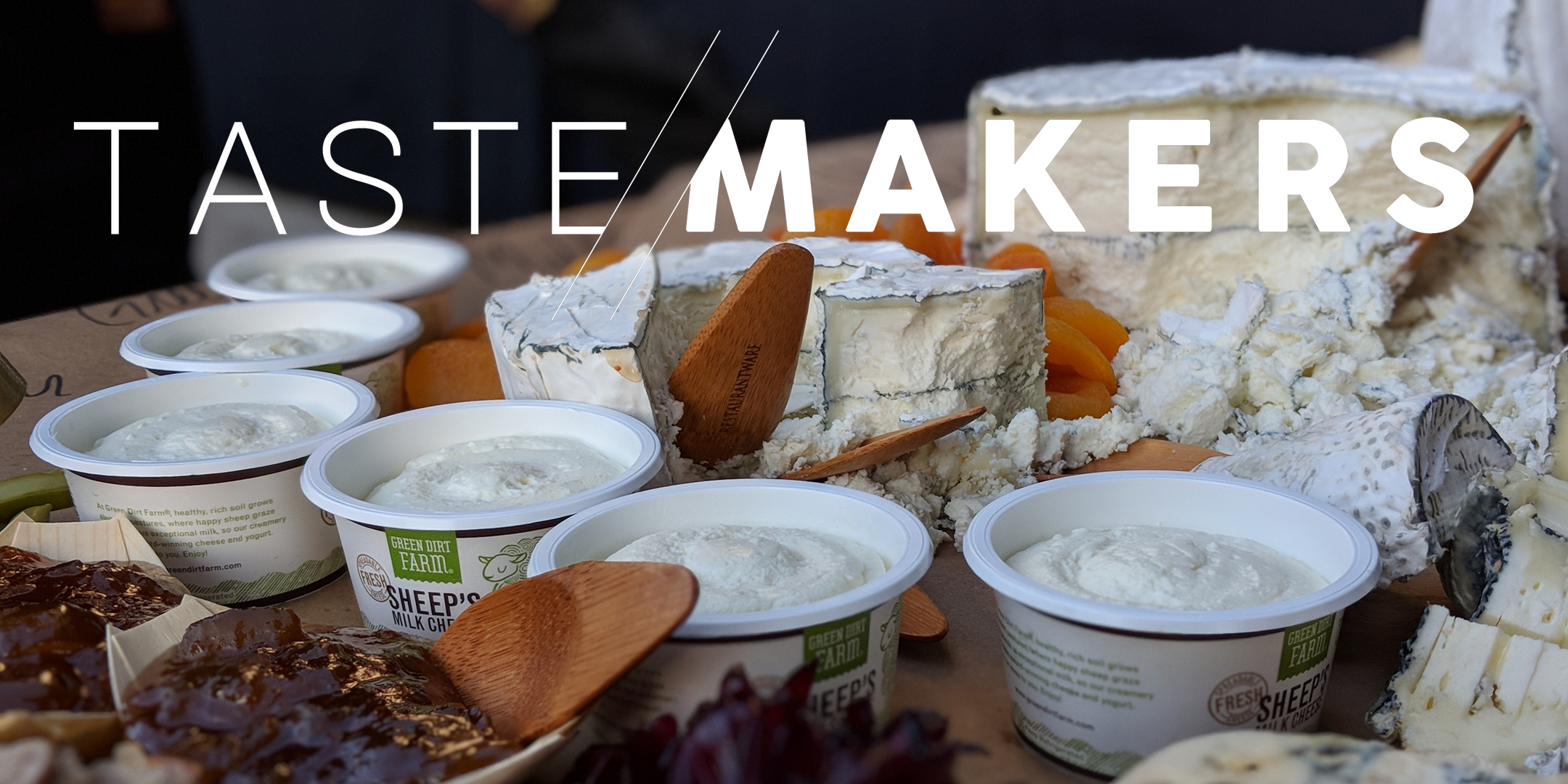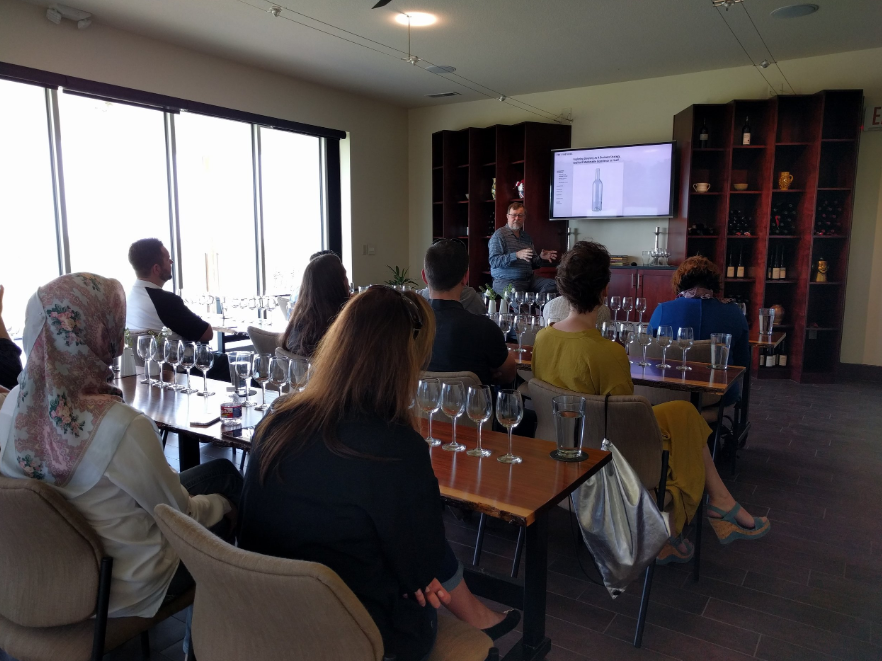
Film Features

Vitis Prohibita
This is the incredible true story of six “innocent” grape varieties that were deemed outlaws by the French government. Their grapes were falsely accused of being toxic when made into wine. Selling their wine was prohibited.

PBS: Tastemakers
Season 1, Episode 12 takes us behind the scenes with Green Dirt Farm and TerraVox. Join journalist and host Cat Neville for an eye-opening journey into the heart of the food movement right here in Weston, Missouri.
Winery Media
Press Mentions
Team building activities in Kansas City are experiences ideal for corporate outings and events. Examples include Kansas City Museum tours, TerraVox Winery wine tasting, and Yarn Social classes. The purpose of these ideas is to help team members discover the best ways to connect and boost their morale.
American wines from outside the expected, eternally lauded places—California, Oregon and Washington, for the most part—are often very tough to find outside of the regions where they’re made. So unless wine lovers actively seek out wines from less commonly considered areas, they are unlikely to encounter them at stores, restaurants or bars. Which, advocates of equal opportunity wine consumption say, is a shame.
Forget Cabernet and Bordeaux — have you ever tasted a Cloeta, Wetumka or Albanian? The odds are, you haven’t because these wines are made from grapes indigenous to North America rather than the popular European varietals widely known today. Surprisingly, these interesting varietals can be found in Kansas City, Missouri, at TerraVox Winery.
The morning dew dampens my sneakers as we ascend the green, undulating hill. Jerry Eisterhold, wearing a wide-brimmed hat against the Missouri summer sun, pulls a bunch of grapes of a type known as Delicatessen off the vine. “I got this one from a guy who should have won an amateur wine competition,” he says. “But the flavors were so unusual, the judges didn’t know what to do with it.”
When I first tasted a wine called Albania months ago, I realized how little I knew about non-traditional wine.
An almost limitless genetic enigma, wine grapes encompass so many pathways that it’s hard to keep track of even basic grapes, let alone the obscure. Esteemed wine author Jancis Robinson has done as much as anyone to delineate some of the vast differences between common grape varieties. But few have ever dared venture into the truly murky.
(Kansas City, MO)—TerraVox Winery Winemaker Jean Louis Horvilleur and his crew of harvesters are nearly halfway through the 2023 grape harvest and already it appears to Horvilleur that the 2023 vintage will be both higher quality and larger than in 2022…assuming the weather holds. The winery located just outside Kansas City is currently 40% finished harvesting its 14 acres of native North American grapes that will be used to produce its Flagship Norton as well as a number of other wines.
For those not familiar with industry forebearers, those bearded 19th century viticulturists who blazed the trail, Munson was credited with helping develop rootstock plantings that combatted the European phylloxera problem in the 1800s. He’s also known for classifying native American grape varieties and finding unique vines. reading about them has never given much reason to celebrate.
Like most modern wine fanatics, I spend my sipping time on wines made from grapes like pinot noir and syrah that were developed over the centuries in the Old World. I’ve long understood that there are also grapes of North American origin that can make wine, but my limited experience in trying them and slightly more experience in reading about them has never given much reason to celebrate.
This webinar will explore the past, present and future of North American Native grapes with an eye on the wines produced from them. Three of the foremost experts on these grapes and wines will be on hand to share their observations and answer questions about the Native North American viticulture and winemaking, as well as the prospects for encouraging the development of a North American Native grape wine niche.
Hybrids have grabbed the attention of the wine world because of their potential to be adapted to a changing climate. But in Missouri, a museum designer is working to revive something that might be even more adaptative: indigenous American grape varieties that were described and classified more than a century ago, but have mostly been forgotten.
With TerraVox, Eisterhold is stretching the concept of inter-active museum exhibits into a new realm. It is a highly personal project, with no foundation or institution to help him plant and graft grapevines, harvest fruit, crush clusters, and market wines. Consider it a new spin on Missouri as the “Show-Me” state.
Most of what you drink everyday – like Pinot Noir and Chardonnay for example — comes from European grape varieties, from the species Vitis Vinifera. But there is a group of Native wine grapes in America that are different in how they grow, how they cultivate and how they flourish.
In this episode of The Wonderful World of Wine, we interview Jerry Eisterhold, the owner of TerraVox Winery. We discuss Jerry's background, his winemaking philosophy, and his unique approach to making wine.
Turns out, before prohibition Missouri and Kansas formed one of the most significant grape-growing and wine-making regions in the U.S. While prohibition destroyed most of that growth, the history of the region is helping many local wineries across Missouri and Kansas flourish today.
It’s a little-known fact: Missouri was once one of the most exciting and thriving wine states in the U.S.—especially in the mid and late 19th century. But even a hundred years later—in 1980—Missouri had another wine-claim-to-fame: Augusta, Missouri, became the first AVA (American Viticultural Area) in the entire U.S. Today, Missouri is ground zero for all kinds of unique and fascinating wines made from native American grape varieties as well as hybrids that most of us have never heard of, or tasted.
(Kansas City, MO)—Kansas City's TerraVox Winery was awarded a Best of Class Award at the prestigious 2023 San Francisco Chronicle Wine Competition. The competition, which saw more than 5,500 wines submitted, named the TerraVox 2021 Lot 3 Norton the Best of Class in the Red Natives and Hybrid category. Only 3% of all wines entered into the competition are given a Best of Class designation.
Share some liquid love this Valentine’s Day with a delicious, but thoroughly unique bottle of wine – one that hails from an emerging wine region or a showcases a lesser-known varietal. Consider Albania, a white American heritage grape cultivated in Missouri.
Interested in starting your own entrepreneurial journey in food and beverage but unsure what to expect? Then read up on our interview with Gerard Eisterhold, Owner of TerraVox Winery, located in Kansas City, MO, USA.
Head north of Kansas City to Weston, Missouri, and you’ll find a hidden trove of wineries where you can buy wine made with grapes grown on local vines.
Winemakers around the country are working to bring back indigenous and hybrid grape varieties that are better adapted to extreme weather and the new pests and diseases that come amid climate change.
When looking for a good wine region to visit, Kansas City has plenty of excellent options. The KC winery choices are varied, as are the type and flavours of wine from this part of the country.
Kirk Berggren was in Shanghai, on the job as a pilot for Federal Express when his wife called to tell him she’d bought a vineyard. For years, Berggens had run The KC Pumpkin Patch, but after losing the land lease, they were looking for a new site-for a pumpkin patch, not a vineyard.
In the brief time after COVID-19 vaccinations and before the surge of the Delta and Omicron variants, my husband, Jerry Eisterhold, and I trepidaciously accepted an invitation to the Veneto region of Italy to celebrate the Italian premiere of the prizewinning documentary, “Vitis Prohibita (Forbidden Grapes)”.
Last summer, I went to an upscale wine bar in the East Village, Manhattan. The waiter informed me that the menu’s theme that week was “unusual wines.” My mind immediately went to a rare type of wine I’d become interested in. Excited, I asked if they had any made with grapes native to the Americas.
Hidalgo, Wetumka, Norton, Cloeta. If you haven’t heard these names before, they are American heritage or American native wine grape varieties. And they are just a few of the dozens of native grape varieties being grown at TerraVox or Vox Vineyards, just outside of Kansas City, Missouri.
One of the most fascinating corners of the wine world today is Weston, Mo., where TerraVox winery is cultivating grapes native to North America. What are these heritage grapes? Chances are you’ve never heard of them.
A handful of California winemakers are convinced that long-maligned hybrid grape varieties are the future. Matthew Niess will soon be working with about 60 different hybrid grape varieties planted throughout Northern California.
Native North American grapes are attractive to farmers for their potential to withstand climate change. But do they taste any good? I felt pretty strongly anti-hybrid before I started reporting my latest feature. Hybrids, in the context of wine, refer to grapevines that are genetic crossings of two different grape species. If this sounds like an innocuous subject, trust me, it's not.
If you find yourself in the Missouri wine region, or are looking for a unique Rose’ to order online, the one we like best is the 2018 TerrraVox Sunny Slope Rose’—which can, as we mentioned before, be enjoyed even when it’s not sunny. Our team of tasters found this to be wonderfully fresh and fruity, but not cloyingly sweet.
You can read on our blog about Norton, which is the official grape of the State of Missouri. So, as you might imagine, we tasted a lot of Norton from Missouri. In fact, we tasted so much Norton that here we give you the five best:

Ready FOR A TASTE?
